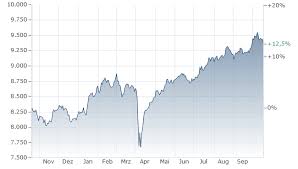An Overview of the FTSE 100 Index and Its Importance

Introduction
The FTSE 100 Index, often regarded as a barometer of the UK stock market, measures the performance of the 100 largest companies listed on the London Stock Exchange. This index is not only a critical component for investors and analysts but also serves as an indicator of the overall health of the UK economy. Tracking the FTSE 100 provides insights into market trends, investor sentiment, and economic stability.
Current Performance of the FTSE 100
As of October 2023, the FTSE 100 has shown resilience amidst global volatility. Recent reports indicate that the index has experienced fluctuations due to factors such as inflation rates, changing interest rates, and geopolitical tensions. Notably, the index recently rose by 2% in the past month, driven by strong earnings reports from key sectors such as healthcare and consumer goods. However, analysts suggest that upcoming economic indicators and central bank policies will play pivotal roles in shaping the index’s trajectory.
Key Drivers of the FTSE 100
Several factors influence the movements of the FTSE 100. Firstly, commodity prices have a significant impact, given the prominence of natural resource companies within the index. Additionally, the performance of multinational corporations, many of which derive substantial revenues from international markets, also affects the index’s stability. For instance, companies like BP and Glencore have historically contributed to the index’s outcomes, influenced by oil and mineral prices.
Implications for Investors
For potential investors, understanding the dynamics of the FTSE 100 is essential. The index offers a diversified portfolio of blue-chip companies, making it an attractive option for risk-averse investors. Regular monitoring of key economic indicators, including GDP growth and consumer sentiment, can offer insights into future index performance. Furthermore, international events, such as Brexit negotiations and global market shifts, also warrant careful observation by investors interested in the UK market.
Conclusion
The FTSE 100 Index continues to serve as a vital tool for gauging the UK’s economic health and market performance. As global economic conditions evolve, stakeholders must remain vigilant and proactive in their investment approaches. Analysts predict that the index may face continued volatility, but opportunities for long-term growth remain prevalent for those willing to navigate the complexities of the market. Overall, the FTSE 100 will maintain its position as a cornerstone of UK investment and economic discussions.
